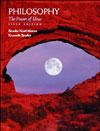| Academics | Philosophers of the third and second centuries B.C. in what had been Plato's Academy; they had the reputation of maintaining that all things are inapprehensible.
|
 |
 |
 |
| Agoge | Way of living.
|
 |
 |
 |
| Ataraxia | The goal of unperturbedness and tranquility of mind that was considered the highest good by ancient thinkers such as the Skeptics.
|
 |
 |
 |
| Conceptualism | The theory that universals are concepts and exist only in the mind.
|
 |
 |
 |
| Epoche | Suspension of judgment concerning the truth or falsity of a proposition.
|
 |
 |
 |
| Ex nihilo | Latin for "out of nothing."
|
 |
 |
 |
| Hellenistic age | The period of Macedonian domination of the Greek-speaking world from around 335 B.C. to about 30 B.C.
|
 |
 |
 |
| Hypatia | Instructed students in Plato, Aristotle, Plotinus, and Ptolemy and improved the mathematical rigor of Ptolemy's astronomical theories, stressing the importance of philosophy and mathematics to life.
|
 |
 |
 |
| Modified skeptic | A skeptic who does not doubt that at least some things are known but denies or suspends judgment on the possibility of knowledge about some particular subject.
|
 |
 |
 |
| Neoplatonism | A further development of Platonic philosophy under the influence of Aristotelian and Pythagorean philosophy and Christian mysticism; it flourished between the third and sixth centuries, stressing a mystical intuition of the highest One or God, a transcendent source of all being.
|
 |
 |
 |
| Nominalism | The theory that only individual things are real.
|
 |
 |
 |
| Plotinus | Held that reality emanates from the One.
|
 |
 |
 |
| Principle of noncontradiction | The principle that a proposition and its contradictory cannot both be true and one or the other must be true.
|
 |
 |
 |
| Pyrrho | Held that every theory can be opposed by an equally valid contradictory theory; we must suspend judgment on all issues.
|
 |
 |
 |
| Pyrrhonists | Members of a school of philosophical skepticism in the Hellenistic and Roman periods who attempted to suspend judgment on all knowledge claims.
|
 |
 |
 |
| Realism | The theory that the real world is independent of the mind.
|
 |
 |
 |
| Sextus Empiricus | The most famous total skeptic. He held the position "I do not know whether knowledge is possible."
|
 |
 |
 |
| Skepticism (capital "s") | A school of philosophy that emerged in the Hellenistic and Roman periods after Plato; included the Academics and the Pyrrhonists.
|
 |
 |
 |
| skepticism (lowercase "s") | The doctrine that true knowledge is uncertain or impossible.
|
 |
 |
 |
| St. Augustine | Provided Platonic philosophical justification for the Christian belief in a nonmaterial God, rejected skepticism, and diagnosed the cause of error in sense perception.
|
 |
 |
 |
| St. Thomas Aquinas | Blended Christianity with the philosophy of Aristotle, delineating the boundary between philosophy and theology.
|
 |
 |
 |
| Stoicism (lowercase "s") | The practice of a stoic, one who is indifferent to pleasure and pain.
|
 |
 |
 |
| Teleological explanation | An explanation of a thing in terms of its ends, goals, purposes, or functions.
|
 |
 |
 |
| Ten Tropes | A collection of ten arguments by the Skeptics against the possibility of knowledge.
|
 |
 |
 |
| Total skeptic | One who maintains nothing can be known or, alternatively, suspends judgment in all matters.
|



 2002 McGraw-Hill Higher Education
2002 McGraw-Hill Higher Education